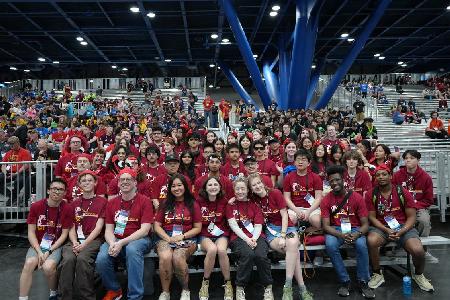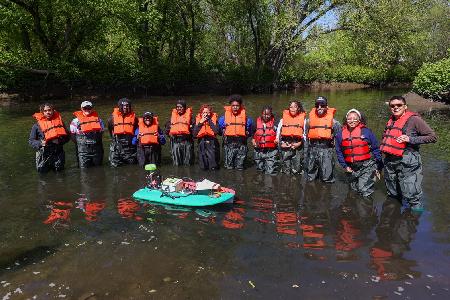
This sponsored guest post is a part of Technical.ly's Corporate Innovation Month of our editorial calendar.
Cloud computing has fundamentally changed how we work, live, and play. The global network of remote computers has grown into a staggering $214 billion industry by making data and applications more accessible to more people wherever they are connected to the Internet. It’s access to information and computing power that today many of us take for granted.
Before the cloud
This fundamental shift in how we interact with computers began in 1999 when Salesforce.com started the software as a service movement. By moving computing power into the cloud and turning computing hardware into software, companies were now able to pay as they went, scale up and scale down at will, and manage their infrastructures without the need for deep networking and IT expertise. On technology’s timeline, it was as evolutionary as the internet was revolutionary.
Salesforce leveraged this power of the cloud to disrupt the $3.3 billion CRM software market and become one of the most powerful software companies in the world. Companies like Amazon mimicked what Salesforce did to disrupt retail commerce, forever changing the world’s economic landscape.
Deep pockets and big brains
Back then, though, building your own cloud was not for the faint of heart or budget. It required massive amounts of investment. Salesforce raised $64.4 million when it was first starting out. The same went for Amazon and other early cloud adopters. To get the cost and scale benefits the cloud provided, companies needed deep pockets and even deeper technological know-how.
What the industry lacked was a way to make this new computing power accessible to others. While Salesforce and Amazon were building their own private clouds, the now-ubiquitous Linux open source operating system was claiming its place as the predominant server software in the market.
Enter Linux
Jeff Dike, one of the contributors to Linux, had developed a technology called User-mode Linux. UML, as it was known, allowed developers to create virtual Linux machines within a Linux computer. This Matrix-like technology was groundbreaking and opened the door for the virtualized cloud we know today.
One of the developers Dike’s technology enabled was a young technologist named Christopher Aker. He saw an opportunity to use this technology not to build the next Salesforce or Amazon, but to make cloud computing less complicated, less expensive, and more accessible to every developer regardless of where they were located, what their financial resources were or who they worked for. The company he built — Linode — helped pioneer modern cloud computing.
A Declaration of Independence for the cloud
Started in a Nashville apartment in 2003 and today anchoring a section of Philadelphia commonly referred to as N3rd Street for its concentration of technology companies, Linode has grown to become the largest independent open cloud provider in the world and a popular alternative to hyperscale companies like Amazon Web Services, Google Cloud and Microsoft Azure. It did so by bucking conventional wisdom.
In an industry where success is too often measured by the amount of funding a company raises, Linode has remained independent, unencumbered by the pressures and trappings of outside financing. That independence has allowed the company to put a maniacal focus on customer service, avoid unnecessarily overloading the developers it serves with products and features they don’t need, and remain focused on delivering what is known among those in the cloud computing industry as the best price-to-performance cloud offerings in the market.
Linode’s mission of democratizing technologies that have long been out of the financial and technological reach of developers, reflects the higher social calling of the open source movement from which it was born and the city which it calls home — leading cloud computing’s independence a stone’s throw from where the original Declaration of Independence was signed.
Join the conversation!
Find news, events, jobs and people who share your interests on Technical.ly's open community Slack

Philly daily roundup: Minecraft in a Philly school; PTW kicks off; Tech and art happy hour

Philly daily roundup: Philly's top innovation leaders; City buildings go solar; PTW kicks off on Friday

Philly daily roundup: UPenn's AI master's degree; Advice for EDA Tech Hubs; Last day of ACP


